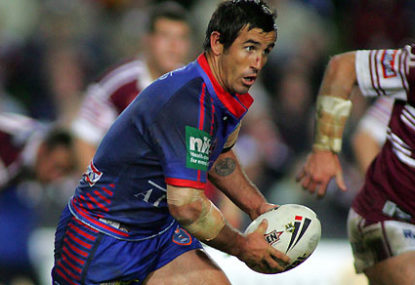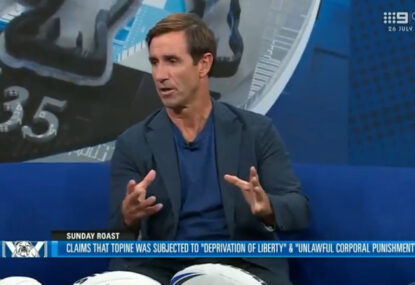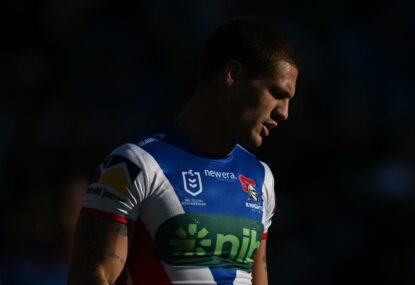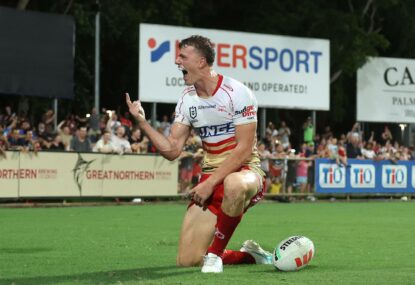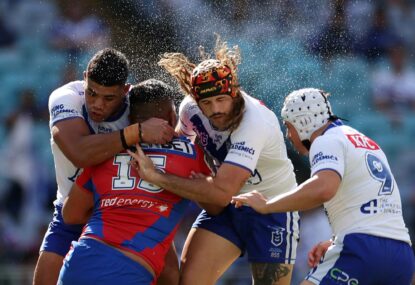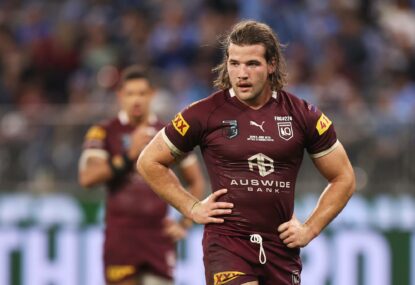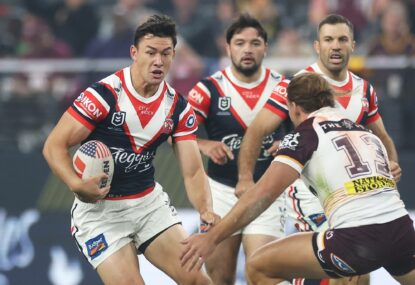Since the Australian Crime Commission announced its report into doping, match-fixing and organised crime in sport, many rugby league supporters have had sleepless nights, unsure whether their club was involved.
As a supporter of the Newcastle Knights, I’ve slept the sound sleep of a man confident of the immediate outcome.
I have no inside knowledge of the team, nor any ‘friends of friends’ who do. But an investigation into drug use in Australian sport? Of course the Knights were going to be involved.
Supporting the Knights is a spoonful of sugar served with a handful of dirt.
Since their inception in 1988 they’ve delivered countless champion players to cheer for, two premierships to celebrate and the one reason I’ve had to visit the Newcastle suburb of New Lambton.
However, they have also had more drug problems than any club in rugby league history.
The 1997 grand final, in which Newcastle won their first premiership with Darren Albert scoring the winning try with seven seconds to play, was the game that saved rugby league and one of the happiest days of my childhood.
Yet season 1998 had barely kicked off when three members of the grand final winning team – Wayne Richards, Adam MacDougall and Robbie O’Davis (who won the Clive Churchill medal for best player in the ’97 decider) – tested positive for performance enhancing drugs.
The only other player busted for performance enhancers in 1998 was Melbourne Storm prop Rodney Howe and, though he’d long since departed, it wasn’t lost on many that Howe was a Newcastle junior.
Andrew Johns was the maestro behind 40 minutes of near-perfect football which saw the Knights win the 2001 premiership, just one of 249 games Johns played in his hometown’s colours before his retirement in 2007.
Later that year, Johns was searched by police in London, after attempting to ride the tube without a ticket, and was found to have ecstasy in his pocket.
This led to his admission of having taken party drugs throughout his playing career, “generally during the off season but there’s times when, during the season, I’ve run the gauntlet” with drug testers.
The 2009 season was not three months finished when Knights fan favourite Danny Wicks – he of the ample belly yet electric pace – was arrested as part of what police described as a “significant drug distribution network”. It was alleged wire taps on Wicks’ phone revealed teammates contacted him to purchase drugs.
Before the 2010 NRL season kicked off, his teammate and housemate Chris Houston was charged with dealing cocaine and ecstasy.
Houston was eventually cleared of charges, while Wicks was sentenced to three years in prison. No other Knights players were officially named in the year-long saga.
While the club has continued its bumpy off field existence since 2010, the dramas have been related to issues in the front office, rather than the gym or nightclub, as local billionaire Nathan Tinkler took over the club and delivered seven-time premiership winning mentor Wayne Bennett as head coach.
With Bennett having had a year to adjust to life in The Hunter and assembled a strong team to compete for the 2013 NRL title, things were going just a little too positively for the Knights.
They were due a little controversy.
Hours after the ACC announced their report last Thursday, the Knights’ offices were audited by the NRL. Knights CEO Matt Gidley said, “We’ve got absolutely nothing to hide and we’re doing all we can to co-operate with this process.”
It’s far too early to speculate on what the Knights may or may not have done.
Part of me asks the question, what if Dave Smith is right? The NRL’s new CEO said, “The information that has been passed on to the clubs is simply that they have been referred to within the report,” implying being mentioned doesn’t necessitate wrongdoing.
A far larger, more rational part of me asks how often is there smoke and no fire? And with the Knights’ track record, the smoke looks a whole lot thicker than any of the other five clubs said to be involved.
And a final part asks the scariest question of all, what if the Knights aren’t being investigated for doping? What if they are, instead, being investigated for match-fixing?
Because if it turns out the Knights have been doping, once again, I can weather the jokes of mates who support other clubs referring to my team as ‘druggies’ and ‘cheats’. I know it will all eventually blow over and I’ll be back to watching my team win and lose in relative peace – just like it did all the other times.
But if my team has been throwing games for their own personal profit – if they’ve cheated our town into paying to watch them lose on purpose – I’m not sure how I’ll sleep.
Joe is the editor of Disaffected Middle Class.





























































































